
Foal Stress Levels Stay Increased Weeks After Weaning
Researchers say that even three weeks after weaning foals still experience increased stress levels.

Researchers say that even three weeks after weaning foals still experience increased stress levels.
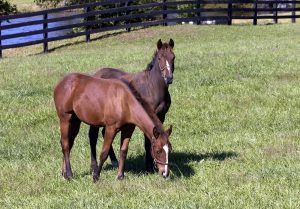
As you consider ways you can help your foal—and his dam—through the weaning process, examine proven methods based on research findings to formulate a plan.
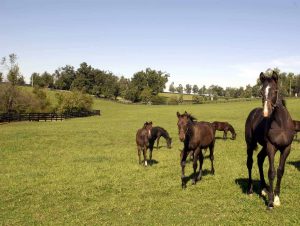
Here’s how to help your weanling foal transition to adulthood as smoothly as possible.
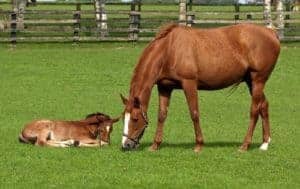
Dr. Nancy Diehl addresses a question about why a mare might respond differently to training after having her first foal.

Our nutritionist offers advice on feeding foals both before and after they’re weaned from their dams.

As you consider ways you can help your foal—and his dam—through the weaning process, examine proven methods based on research findings to formulate a plan.

A well-planned feeding program helps a foal’s caretakers manage growth rate effectively. Learn about common foal-feeding challenges and solutions, as well as how to develop a well-balanced feeding program for young, growing horses.
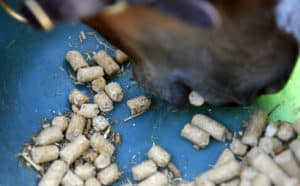
Learn about the risk factors associated with horses getting gastric ulcers, as well as diagnosis and basic management and treatment.

A new study by French scientists suggests that allowing foals and their dams to wean at their own pace could be a more welfare-friendly breeding strategy than traditional methods.

Do you have a young horse in your life? Learn about young horse growth, development, exercise, and nutrition during this Q&A.

Veterinarians share their recommendations for managing orphan foals, including diet challenges and behavior issues.

Scientists examined how the pairs’ spatial distance evolve between each other, as well as between other herd members.
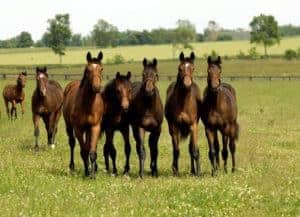
Weanlings require additional support and feeding adjustments as they grow. Here’s what to remember.
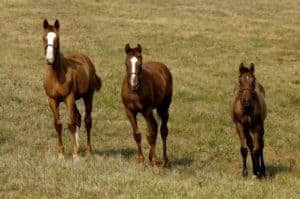
A forage-based, total mixed-ration cube fed free choice supported weanling growth rates without increasing DOD cases.

Start planning early to make the transition away from mom as smooth as possible.

Care for horses under the age of 4 with their future health and performance in mind.
Stay on top of the most recent Horse Health news with
© 2022 Copyright Statement dolor sit amet, consetetur sadipscing User Terms, sed diam nonumy eirmod tempor invidunt ut labore et dolore magna aliquyam erat, sed diam voluptua. At vero eos et accusam et justo duo dolores et ea rebum. Stet clita kasd gubergren, no sea takimata sanctus est Lorem ipsum dolor sit amet.
"*" indicates required fields